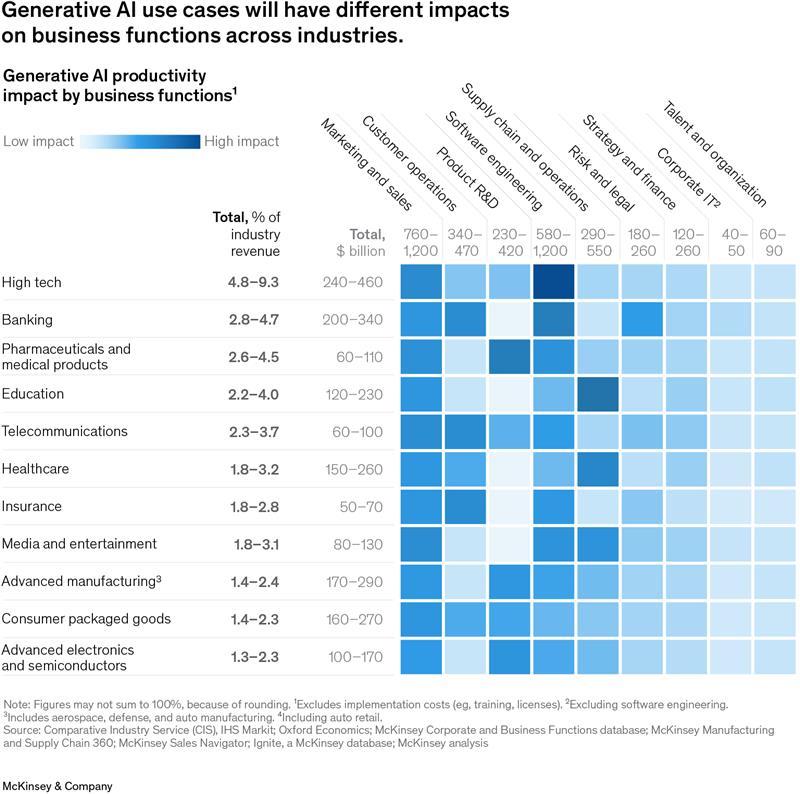With the business technology environment ever-changing fast, Salesforce has stated that adoption of AI agents by businesses has increased by an astounding 119 per cent in the first half of 2025. This significant increase highlights the growing importance of autonomous digital assistants in transforming workplace processes in all industries, marking the new age of efficiency and unity in enterprises.
What Are AI Agents and Why Are They Growing?
AI agents are semi autonomous software entities designed to support employees by automating tedious tasks, furnishing insight and allowing more informed decisions to be made. They are not traditional automation tools as they learn and adapt to interact, and will be able to cope with more complex workflows than automation tools before. According to Salesforce Agentic Enterprise Index, companies are not only occasionally applying AI, but are integrating these agents into every one of their business processes, specifically sales, customer-service and internal processes.
Key Findings from the Salesforce Agentic Enterprise Index
The data of the report shows shocking tendencies:
- The growth in the number of AI agents developed was 119 per cent in a span of six months only.
- The number of conversations handled by customer service AI agents was 22 times higher than at the beginning of the year.
- Improved cooperation between AI and human employees resulted in increased escalations to human agents of 22 per cent in the first quarter to 32 per cent in the second quarter of 2025.
The number of times employees communicated with AI agents went up by an average of 65 per cent every month and the conversations with the agents were 35 per cent longer, which shows more engagement with the AI agents.
This information depicts not only higher usage, but also variably modified working processes where AI agents supplement human experience, enabling employees to operate and work on high-value and strategical tasks.
Impact on Sales and Customer Service
Salesforce AI agents take care of the work done in sales departments (writing emails, setting meetings, and establishing follow-up tasks). These technologies improve the productivity of sellers, enable the sales representatives to spend more time on building relationship and complicated negotiations. At the customer service level, AI agents will address preliminary enquiries and direct a multifaceted problem to human representatives in a more effective manner, which will enhance the speed of response and customer satisfaction.
Joe Inzerillo, the Chief Digital Officer at Salesforce, makes it clear that AI agents are the so-called force multipliers and enhance the performance of businesses as well as the employees. The collaboration between machines and humans makes operations more efficient and opens up new values that have never been seen before.
Challenges and Considerations for AI Agent Adoption
Even though the growth has been optimistic, the integration of AI agents has its challenges. According to Gartner, by 2027, more than 40 per cent of AI projects using agent-based automation will have been abandoned on vague ROI and rising costs. The marketplace is also facing the challenges of “agent washing where vendors are selling ordinary AI tools as agentic yet they lack agentic capabilities.”
The salespeople and business executives of Salesforce need to concentrate on implementing realistic agentic AI solutions that can truly complement workflows and result in quantifiable business improvements. To maintain the long-term success, it is necessary to establish strong monitoring and governance systems along with constant improvement.
The Future Landscape: Multi-Agent Systems and Human Collaboration
In the future, Salesforce expects the transition to single AI agents to multi-agent systems that are coordinated to address more complex and integrated applications. These systems will replicate complex business environments, e.g. introduction of a new product or during a marketing campaign, providing high-tech suggestions and information.
Notably, human beings are still in the middle of the AI-enhanced work area. The escalations of growth show an increase in confidence that AI agents will take up the same duties as the human workers handle subtle cases. The Nathalie Scardino of Salesforce states that workers are interacting with AI in a meaningful way, changing how work is done and creating new career opportunities.
Case Studies: Real-World AI Agent Deployment
Companies like Toyota Motor North America have used Salesforce AI agents to automate their processes and make customer-service tasks more effective so that resolutions are securely and effectively scaled. In the same way, the Salesforce and AWS partnership will also benefit the small businesses and lead to increased adoption of AI by businesses by means of consolidated billing and integration with the cloud, hence reducing entry barriers to advanced AI features.
Conclusion
The use of AI agents to change the work environment in a fundamental shift sparks a new paradigm in the productivity of business operations and customer interaction so that Salesforce Agentic Enterprise Index throws a lot of light on AI agents. To the businesses that are not afraid of such a leap, AI agents are an effective tool to optimize their performance, employee experience, and customer experience, not to mention the fact that it opens new possibilities in terms of growth.
The key responsibilities of this new work will be salesforce professionals and enterprise leaders, who will focus on crafting resilient, secure, and collaborative AI agent systems and attain sustainable competitive advantage.




